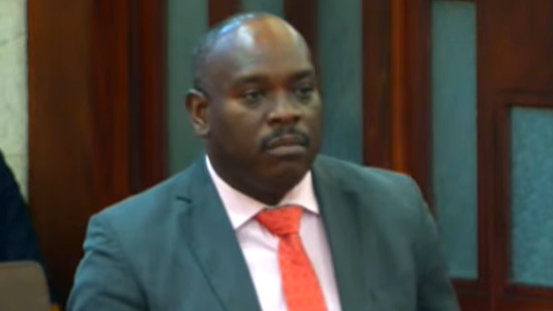Deputy Governor of the Central Bank, Michelle Doyle, expects the whole economy to benefit when the institution launches the Instant Payments System early next year.
She sees it positively impacting Government’s cash flow and the management of business revenue in the private sector, while making it easier and safer for consumers to make payments.
Doyle called the system a “game-changer” yesterday during a panel discussion on Digital Transformation: Harnessing Innovation For Regional Development. It took place during the opening session of the Central Bank’s 45th Annual Review Seminar at Radisson Aquatica Resort, Aquatic Gap, St Michael.
All six commercial banks, the country’s three largest credit unions, the Accountant General and Barbados Stock Exchange are scheduled to be on board when the system is launched in March as part of the Barbados Payments Modernisation Project, which is being implemented in partnership with the World Bank.
Doyle said the payments infrastructure was ultimately the backbone of the economy and this meant that “when we talk about easier payments, more costeffective payments, more secure payments, it means that there are various economic benefits as well as efficiency gains that can accrue.
“So if we start by reflecting in terms of businesses, where their processing costs related to receiving payments for sales revenue is lower, it means that business margins can be adjusted,” she explained.
“It means that more transactions can be facilitated, because whereas you may go to a store and realise, ‘Okay, I don’t have my card, I don’t have cash, but I do have my phone, and I can effect a payment directly from my mobile device or from any particular online application that I have access to’, that means greater commerce.”
Greater cash flow
She added: “From the point of view of Government, with regard to tax collection and revenue, it means that you are creating infrastructure that allows for greater cash flow. And that movement in itself resonates with regard to underlying economic activity, even if we think in terms of us as individuals managing our own money. So [there is] general financial management, where we can better determine the timing and the convenience of executing payments.
“All of these factors really resonate with regard to creating a system that fosters better economic activity as well as greater financial inclusion, because you are making it possible for small and mediumsized entities, as well as individuals that previously may not have had access to effective payment services, to be able to do so.”
The Deputy Governor also said the initiative would focus on “our cyber resilience as we forge ahead in terms of digital payment solutions”.
This was “one of the critical areas that we are managing because it speaks to how do you achieve enhanced fraud detection when you are dealing with quicker settlement times”, Doyle noted.
“So, for us, that is a key aspect that is informing our digital financial literacy as well as the level of security that we are embedding within the system for payment service providers with regard to their business rules and other fraud detection elements within the configuration of the system.” (SC)
A consultant
IT WAS incorrectly reported in the Monday Man feature on Page 12 of yesterday’s DAILY NATION that Kelvin Carvalho is the Special Envoy in the Prime Minister’s Office on Reparations and Economic Enfranchisement.
Carvalho is a consultant to Trevor Prescod, Special Envoy for Reparations and Economic Enfranchisement in the Prime Minister’s Office.
The post High hopes for instant payments system appeared first on nationnews.com.


